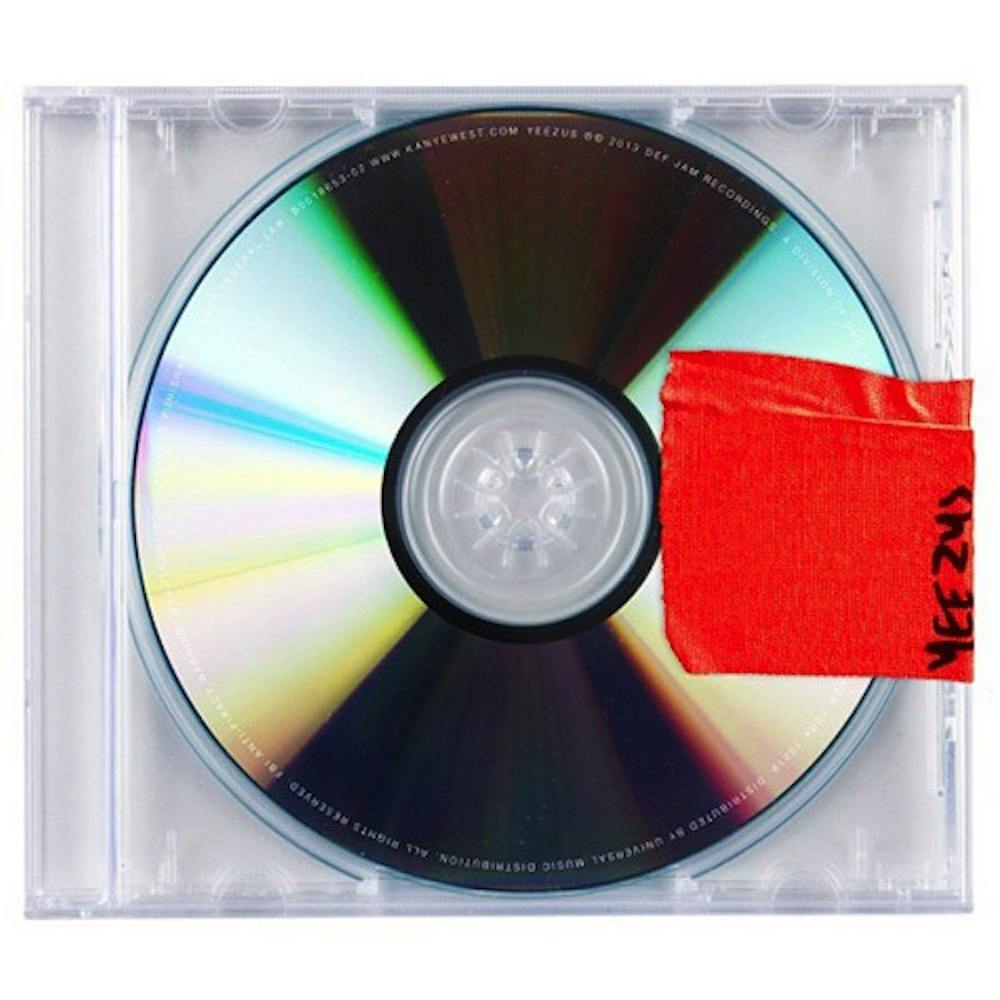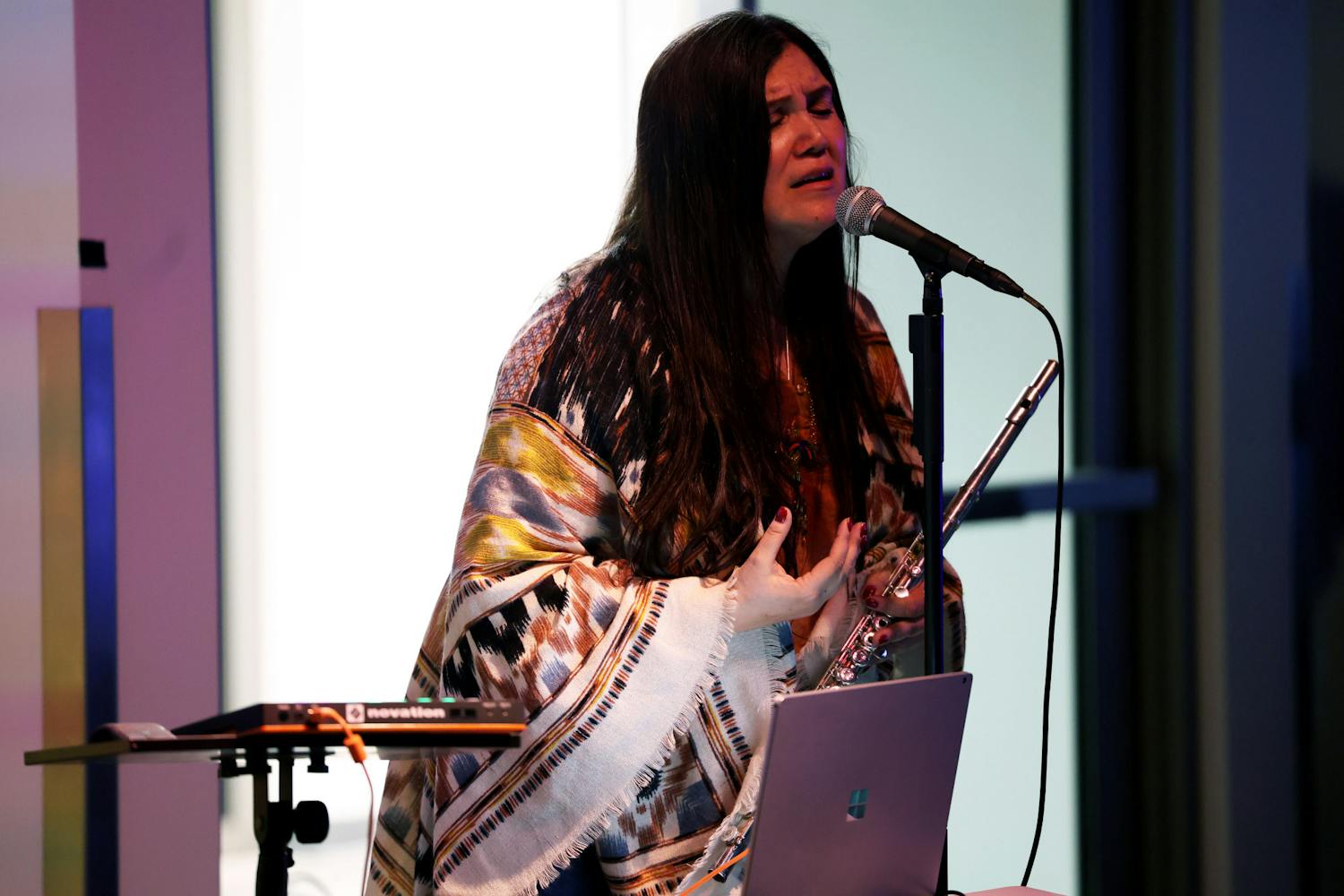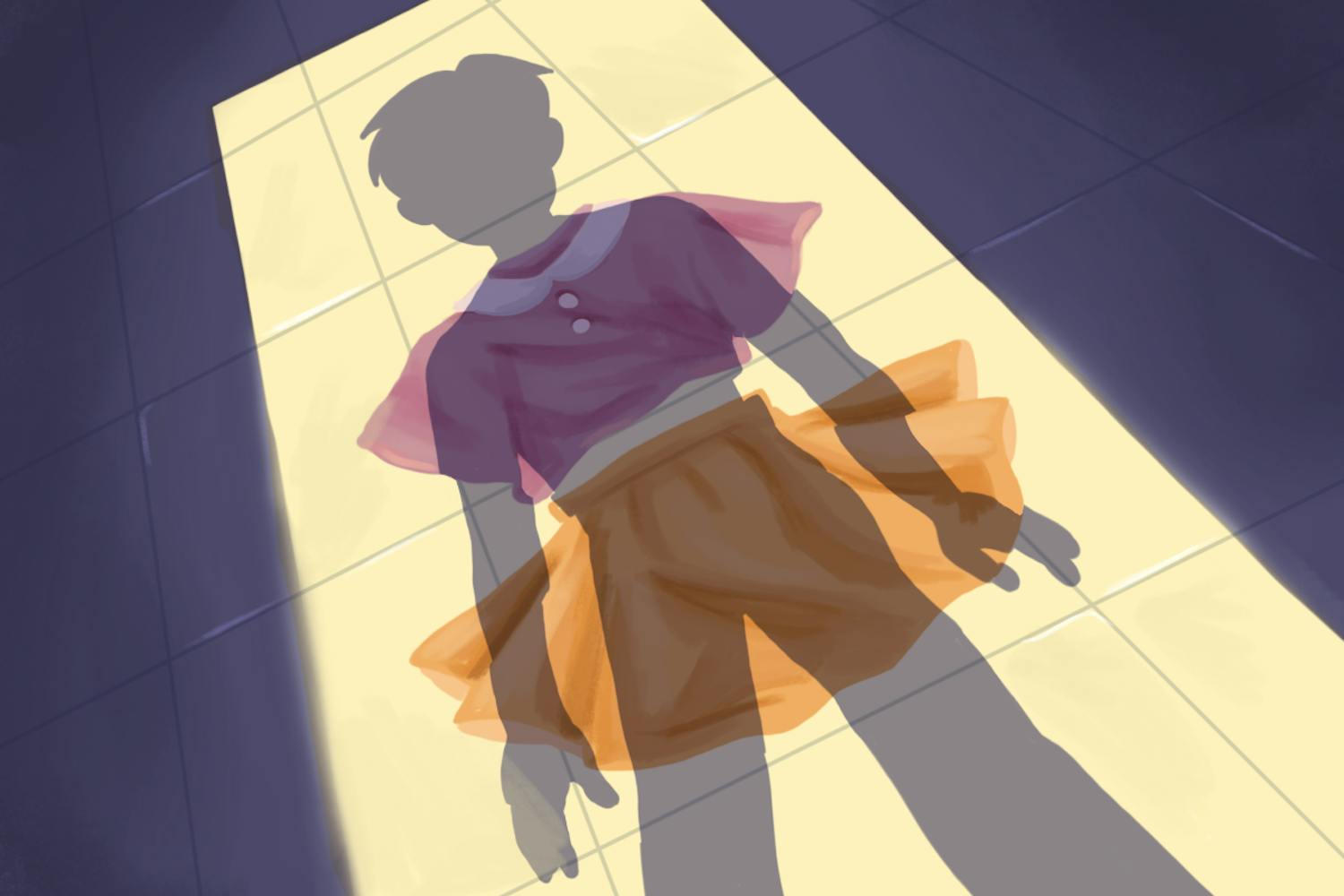Pitchforks: 5/5
In the days preceding Kanye West’s highly anticipated album, "Yeezus," West was quoted in a New York Times article reflecting on his body of work and legacy stating that, “I think that what Kanye West is going to mean is something similar to what Steve Jobs means. I am undoubtedly, you know, Steve of Internet, downtown, fashion, culture. Period.” Coming from anybody else, it might be considered blasphemy to make comparisons to Steve Jobs (Apple’s late CEO,) but for someone who has a track titled “I Am a God,” it might be a moment of humility.
But seriously, West, like Jobs, has been heralded as a innovative genius ahead of his time who suffers from a mercurial personality mixed with perfectionism and served with a shot of charisma. Steve Jobs is known for creating products that are cleverly minimalist and complex at the same time.
West doesn’t work alone, and he doesn’t surround himself with b-players. West had production contributions from Daft Punk, TNGHT, Hudson Mohawk, NO ID and Rick Rubin. However, West is undeniably the visionary for this project.
The album flirts with industrial rock, minimalist hip-hop, trap and drill. It’s like "808s & Heartbreak" overdosed on uppers due to love loss, and "Yeezus" is a chronicle of that, from the highs to the lows, to where you’re “hanging on a hangover” with West as he explores his creative genius.
The album’s opener, “On Sight,” begins with what sounds like someone tuning an electronic cat that‘s clearly unhappy. This sound fades into a Daft Punk dance beat that sounds like someone playing the woozy piano of the 1930s. Just as you’re getting comfortable adjusting to this futuristic beat, you get transported to into a trance-like soul sample of a children’s choir song entitled “He’ll Give Us What We Really Need” by the Holy Name of Mary Choral Family. And, immediately you get jerked back into “On Sight” and back into West’s focused vision. However, you can tell immediately that West’s conflicted with his new direction.
There are three moments, including the moment during “On Sight,” that West reveals his past persona as a soul sampler, which made him famous and baptized him in the game. There’s a glimpse during the outro of “New Slaves,” which is the most minimalist offering on the album. It just features one repetitive and harrowing beat that crawls up your spine and arrests your attention as West raps his most poignant lyrics about corporate America. It’s fitting then, at the end of his most ambitious minimalist offering, that West samples the '60s Hungarian rock group, Omega, which sounds like heaven if heaven played psychedelic blues to show his tension. And on the last track, "Bound2," which is probably the best offering on the album finds West in complete soul mode. It’s a signature West soul beat, and his lyrics are at his best as he raps, “Close your eyes and let the word paint a thousand pictures / One good girl is worth a thousand b-tches.”
This album is in no way a lyrical masterpiece by traditional hip-hop standards. It may be one of West’s worst lyrical performances ever. Early in West’s career, he was obsessed with proving that he was just as good of a producer as he was a rapper, and with this album, it seems like he’s given up trying to prove that and letting his raps taking back seat to his lyrics.
That’s not to say that West has abandoned lyricism, he’s just surpassed the need to prove himself. This is seen especially when he throws his worst line of the album “I’m afraid of my demons so I sleep with a night light” with one of his most poignant “Uh, my mind move like a Tron bike/Uh, pop a wheelie on the Zeitgeist.”
Rick Rubin is quoted as saying that West was way behind schedule when he started helping him. When they had two days to go, West had a ticket to Milan and was determined to finish the album before he left. He had five songs that needed vocals and two or three needed lyrics. And West did it. Many would call this sloppy on West’s part. But I think it goes to show that West has gone beyond lyricism. He has gone so minimal that even lyrics are seen as secondary and that hip-hop has moved into a age where great lyrics are not everything. With "Yeezus," West asks you to close your eyes and let the music paint a thousand pictures and realize that one good album is worth a thousand Taylor Swift interruptions.
This album accomplishes minimalism in so many forms, while maintaining the complexity that you would expect from a Kanye West album. In that way, it’s a wild success, especially coming off the heels of "My Beautiful Dark Twisted Fantasy," one of the best albums of our decade. This is by no means a flawless album, but it’s as close as you can come based on the vision Ye extrapolated in his interview. As "Yeezus," you have to practice what you preach, and he’s walking on water.
Reach the reporter at dgburns@asu.edu or follow him on Twitter @dgburns20





